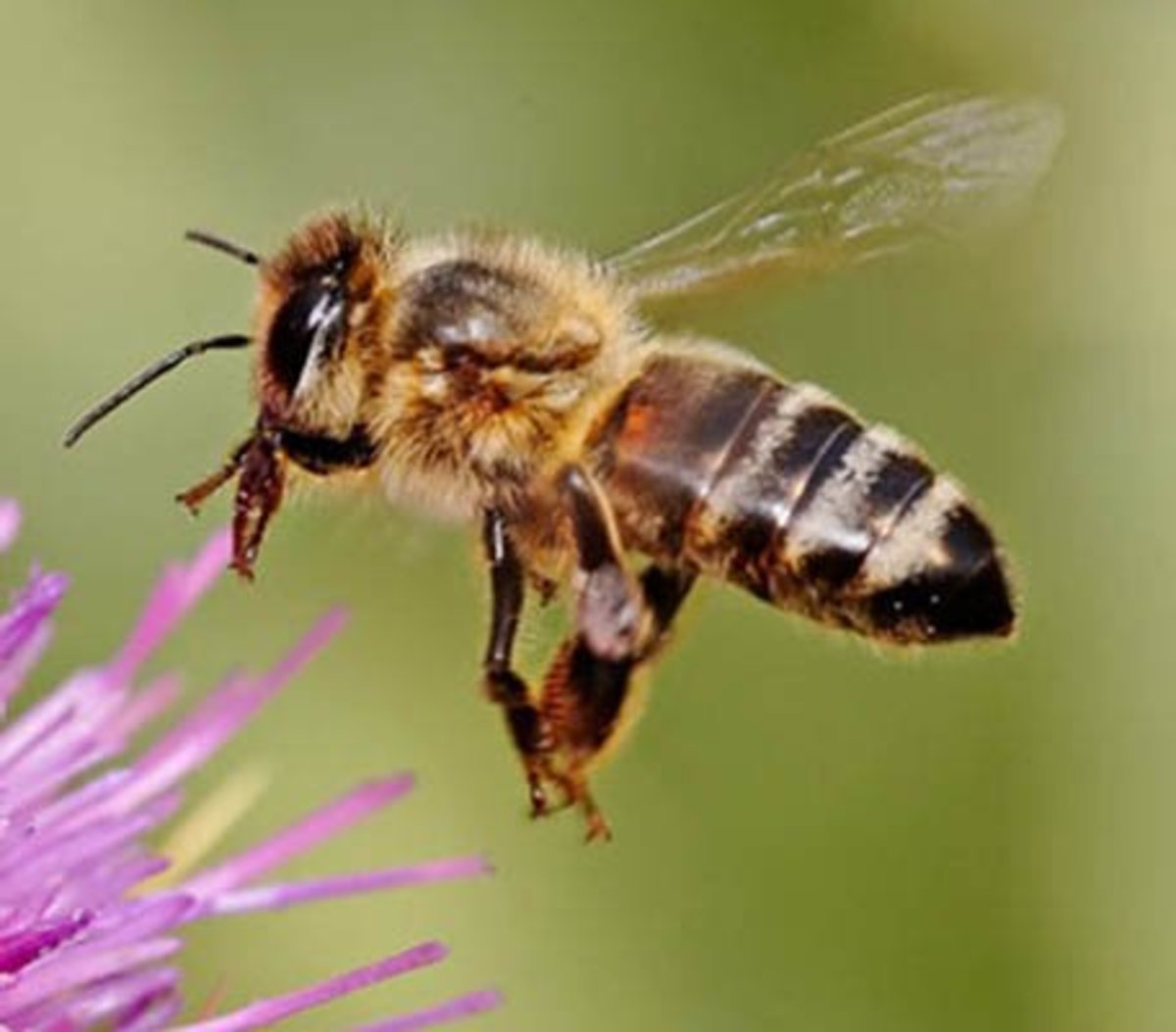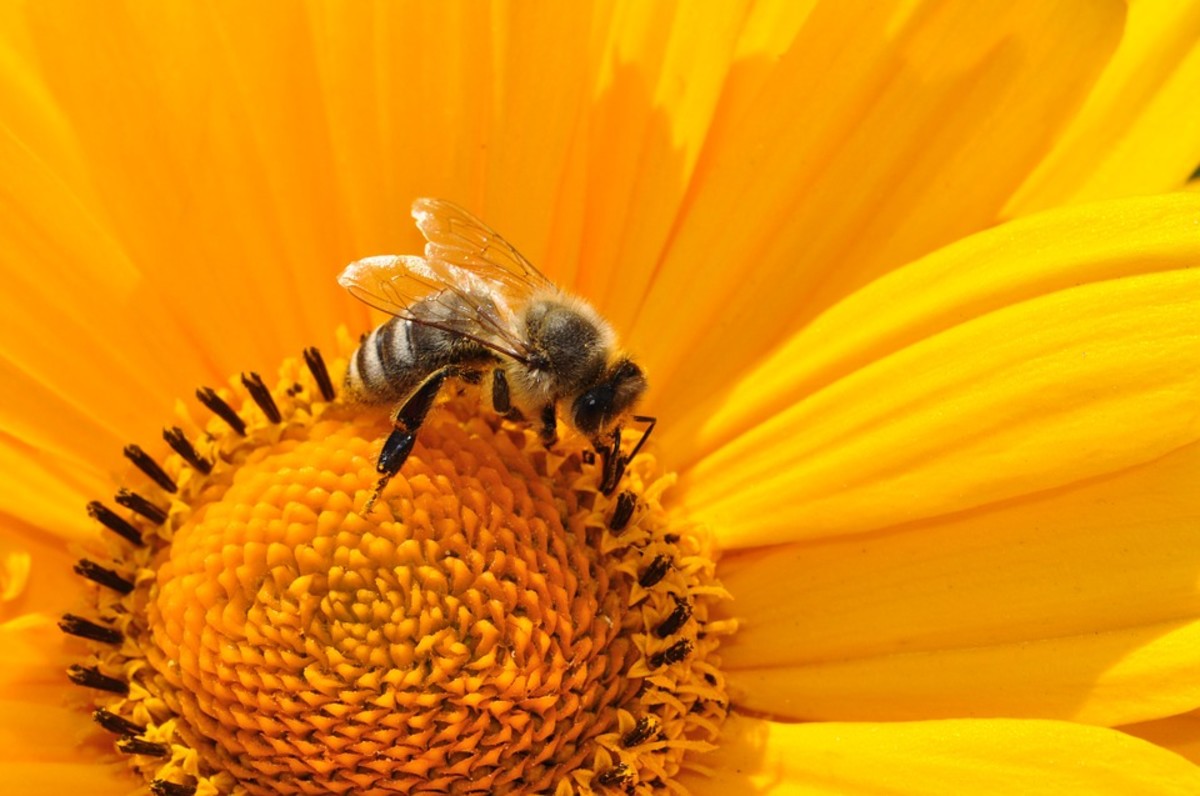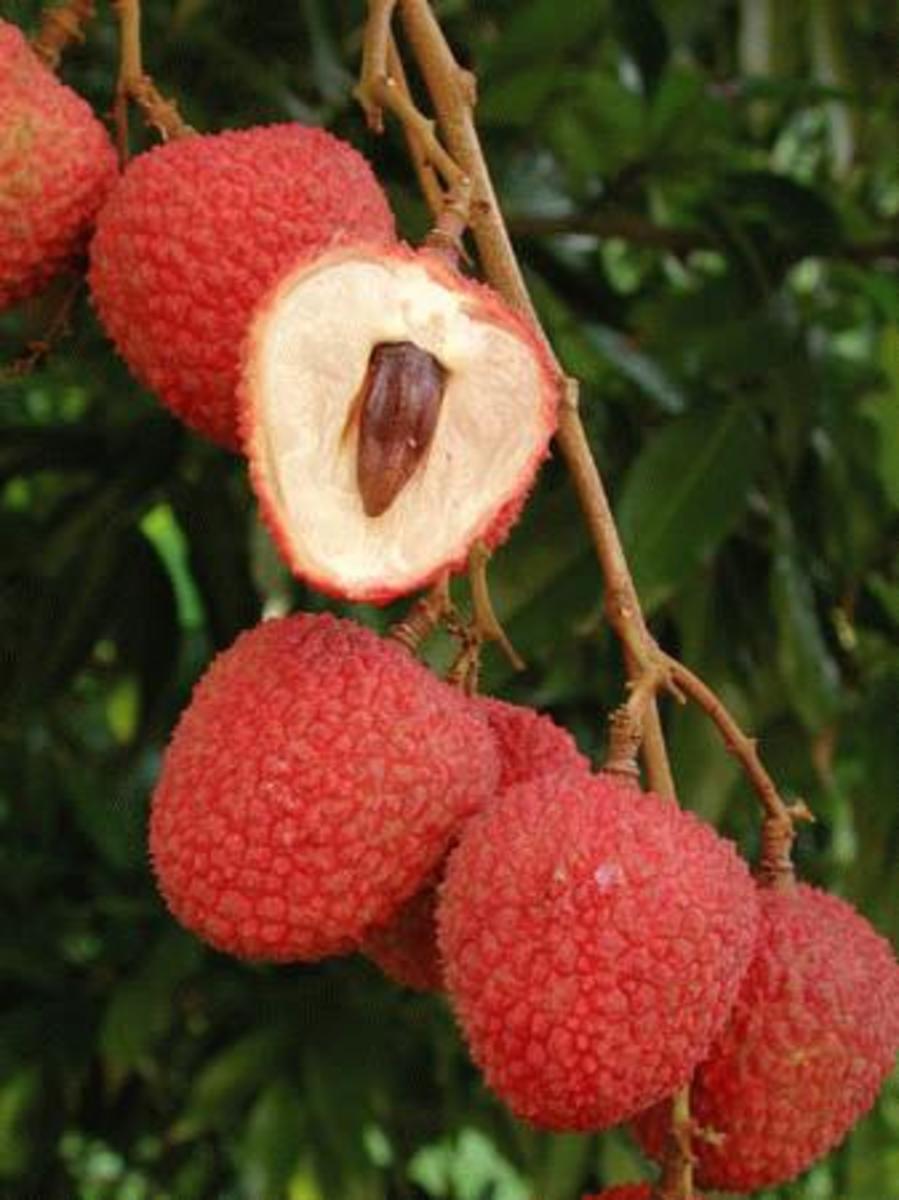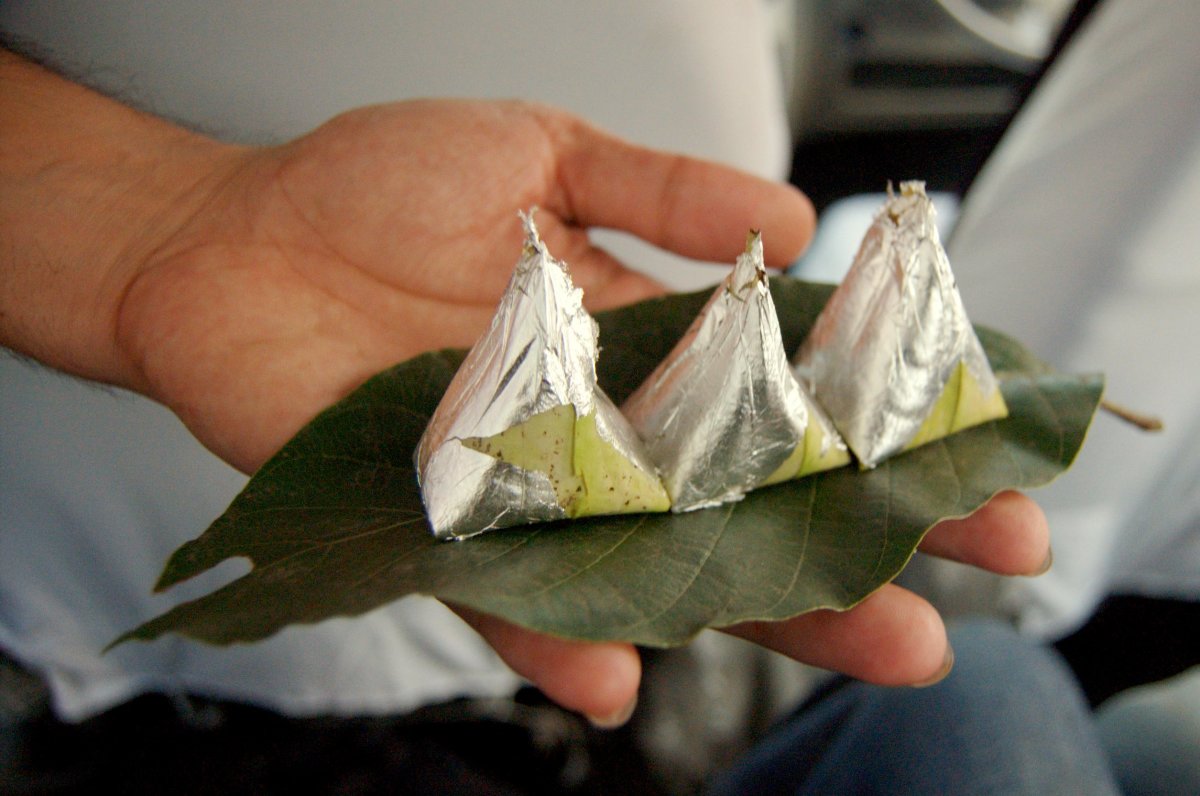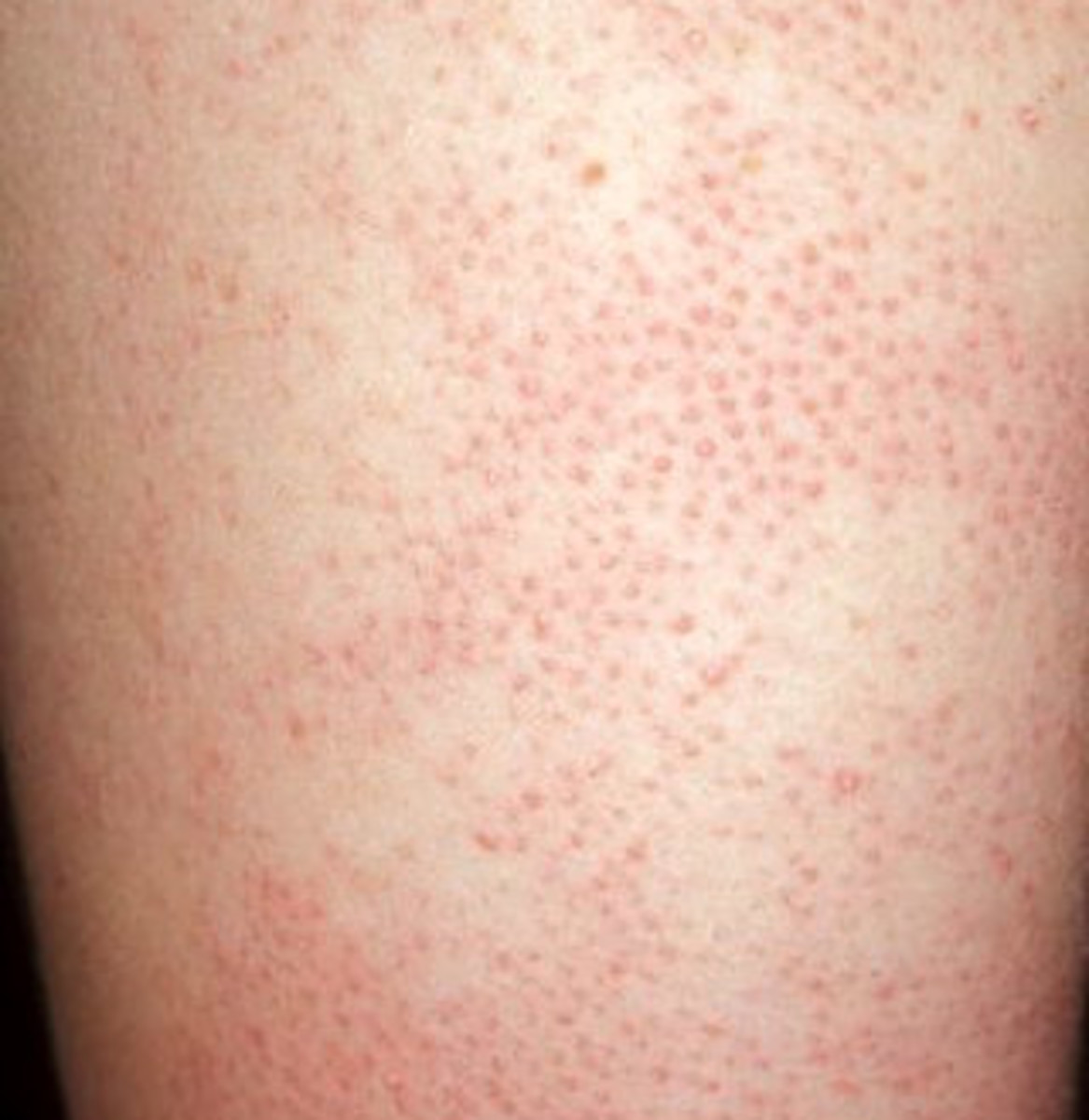- HubPages»
- Health»
- Alternative & Natural Medicine»
- Alternative & Natural Supplements
Bee Pollen - Why it is Considered a Super Food
As many of us know, bees are probably the most useful
creatures humans could ever ask for. In
addition to pollinating our crops and the beautiful flowers we see everyday,
they produce wax, honey, royal jelly, propolis, and pollen. While they are hardly making all these
components for humans, we do tend to benefit off their labor, and no food has
been so all encompassing in human civilization as bee pollen. Many people are now interested in bee pollen health benefits.

What is bee pollen?
Bee pollen is collected from the pollen that is left all through the bee’s body while it’s collecting nectar. The bee will lick its back leg where there is a special concavity to put the moistened and compacted pollen. There are tiny bristles in this area to keep the pollen in the pollen basket, and special enzymes keep the pollen from germinating. It’s a chalky substance that is said to have vitamins, minerals, protein, and amino acids – basically everything to satisfy a human’s health needs. Studies have given mice bee pollen as their sole source of food, and mice have not only thrived on it, but managed to produce generations of mice raised solely on bee pollen.You can imagine the human benefits of bee pollen from such a study. As for bee’s, Bee pollen is a source of nutrition for the members of a bee colony, the other source being honey.
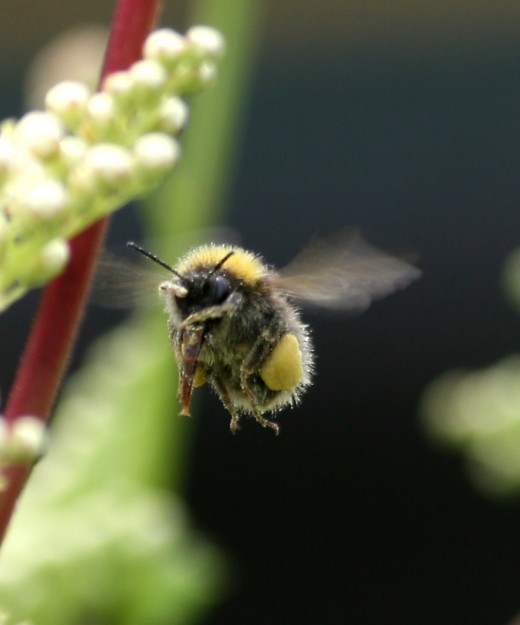
How is bee pollen collected?
Bees themselves collect the pollen in as little as 8 minutes doing their jobs of moving from flower to flower, and collecting the pollen that accumulates on their bodies. You’ve probably seen the pollen basket at work on bees who have a big wad of pollen on their back legs. Bee keepers collect this pollen by putting a screen over the entrance of the hive big enough for the bee to fit through, but not usually the pollen. The bees are forced to drop their loads, and subsequently learn that they have to bring smaller loads in if they want to bring pollen in for the colony. As bees have a memory of about three days, the screen is usually left on for three days, then taken off for another three days while bees forget that they couldn’t bring such big loads into the hive. Meanwhile, the pollen gets dropped into a compartment collected by bee keepers.
What is it used for?
People use bee pollen practically as a cure all, and for good reason. With it’s suite of nutritional components, bee pollen can help you lose weight, increase energy, enhance your mood, increase your memory, build your immune system, and built your resistance to allergies. It’s even said to increase your libido. While bee pollen benefits are many, you should know where you get the bee pollen from. As such a small product, pollen itself is susceptible to many negative environmental factors, like pollution. You want to ask questions about where your pollen was collected and how it was processed. Remember, the beauty of the product is that it’s a natural, raw product. If it’s been processed, it will lose those precious enzymes that make it so powerful. Therefore organic bee pollen is the best.

Where do I get some?
Well, hold on, there, skippy. There can be adverse reactions to bee pollen. Bee pollen side effects include itchy throat, wheezing, and other signs of allergic reaction, particularly if you’re already allergic to bees. But if you don’t have a reaction to bee pollen, you should know that bee pollen actually has a thick indigestible husk, kind of like the skin of corn. So you’ll need to take a lot of it to get the benefits. There are a lot of recipes online for how to take bee pollen, but I recommend taking it in an herbal tea along with honey. There is also a lot of sources online in which to find a supplier, but if you have a local farmer’s market, you may be able to find some from local bee keepers. Just like local honey, there is a greater chance of having enhanced benefits from local pollen as you are ingesting pollen from the plants that you would likely be allergic to.
In short, bee pollen is really quite remarkable. I like to think of it that it's the right kind of supplement - something that is natural and not processed that can give you the extra oomph you need that you may be lacking in your diet. It's definitely worth a try, maybe even a little self experimentation to see if you really need so much coffee or energy drinks to get you through the day!
Do you think bee pollen is for you?
If you liked this article, you might want to check out some of my other hubs:
- Some Basic Weight Loss Tips
Sometimes it seems like everybody you know is on a diet. Your sister is on a diet, your boss is on a diet, sometimes even...


